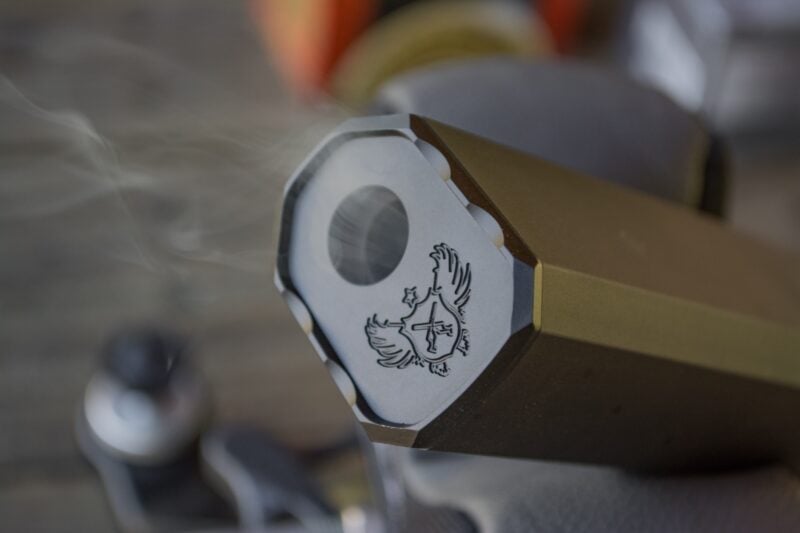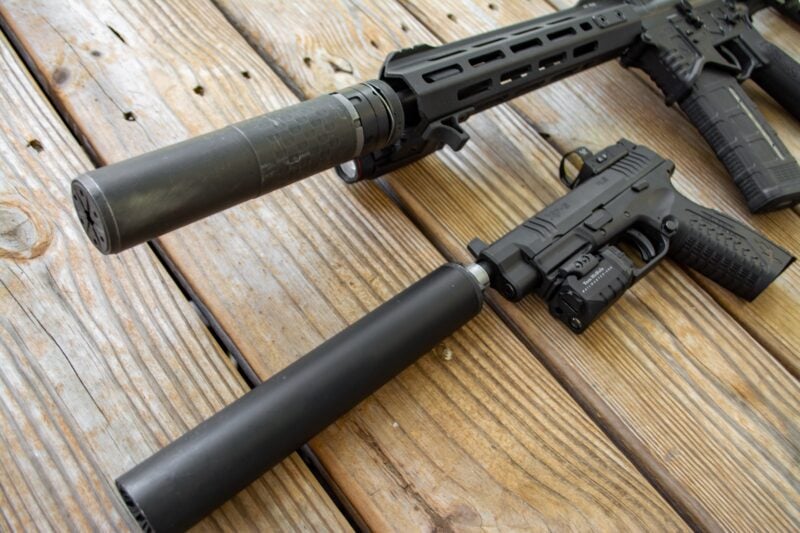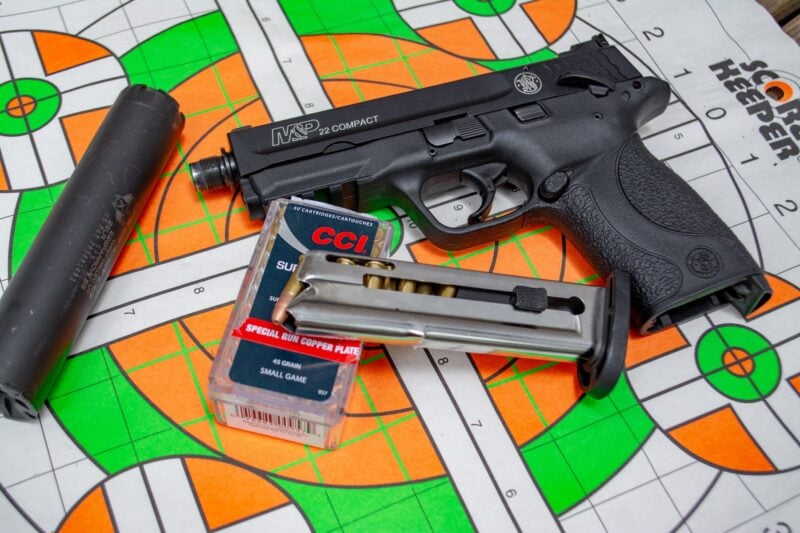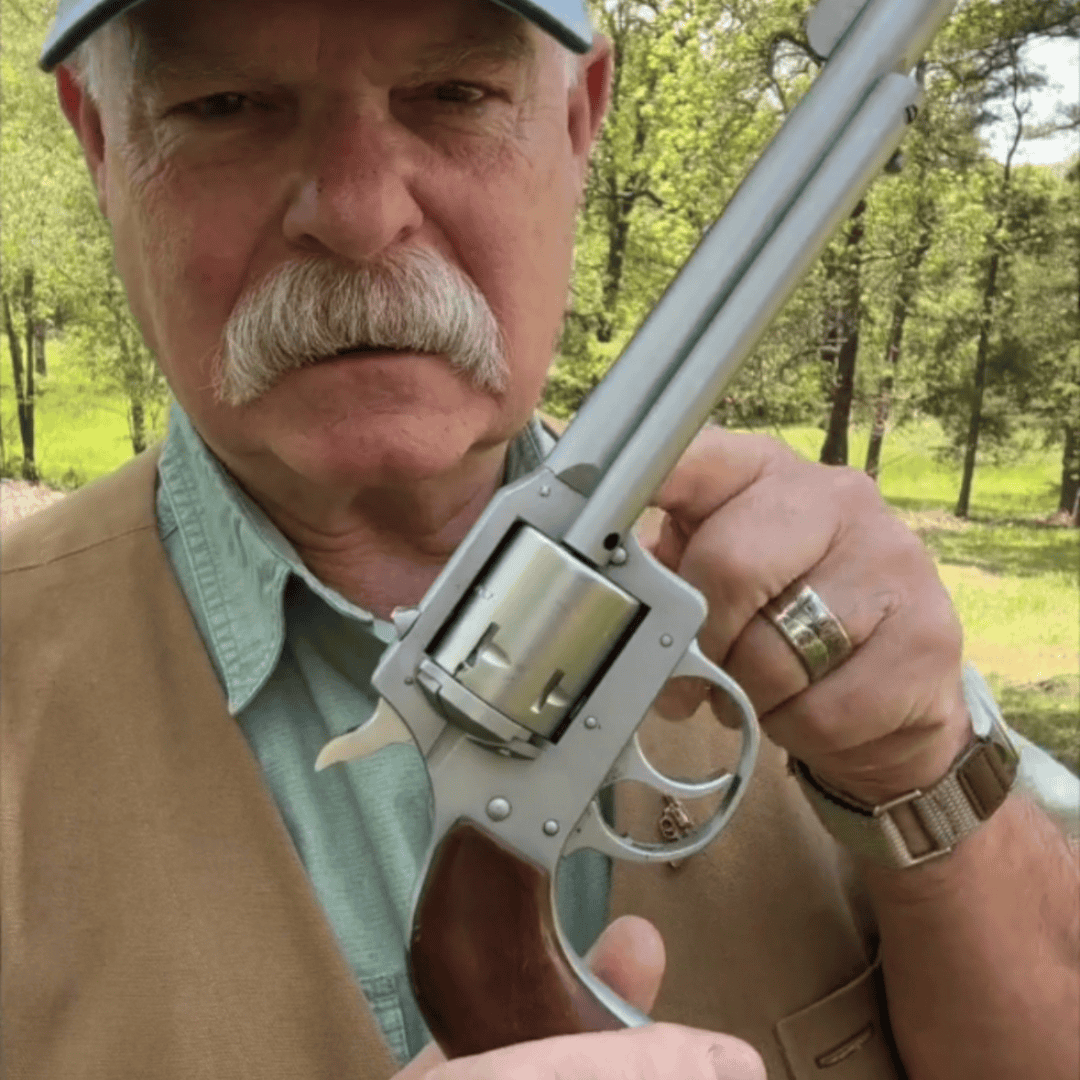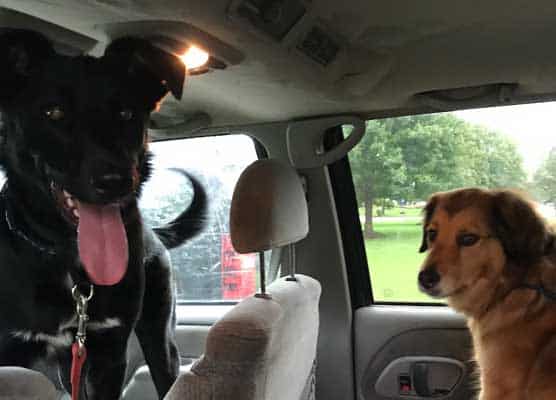Silence? Or Not So Much?
Why I Use Hearing Protection When Shooting Suppressed
I’m a big fan of shooting with silencers. Even still, the whole topic of suppressors is chock-full of myths and misconceptions.
Let’s start with the name. If you’re one who values the importance of precise terminology, you already noticed I used the words “silencer” and “suppressor” in the opening sentence. As it turns out, both are correct. While the term “suppressor” more accurately describes what these devices do, the original sound moderator (as airgunners call them) was patented by one Hiram Percy Maxim in 1909, although he had been selling them since about 1902. The device name on the patent? Silencer.
But the big topic of confusion is whether suppressors, moderators, silencers, or whatever you want to call them, make firearms’ hearing safe. Well, they do. And they don’t. As with many things in life, knowing some of the details makes all the difference and may save you from lifelong hearing loss. Let’s explore.
The Science of Sound
Sound (really pressure) is measured in decibels, or dB for short. All we really need to know about decibels is they’re not measured on a linear scale but a logarithmic one — kind of like one of those sharply escalating hockey stick graphs defined by complex algebra equations. For example, 20 dB is not twice as “loud” as 10 dB; it’s ten times louder. So, small differences in the dB level translate to big changes in noise.
As for our precious hearing, exposure to loud noises does cause permanent and non-fixable hearing loss surprisingly fast. We hear by sound waves vibrating our eardrums, which in turn cause vibrations in small bones, which in turn create vibrations in cochlear fluid. Inside the cochlea are small hairs with even smaller protrusions that ride the sound waves and translate movement into electrical signals carried by the auditory nerve. The problem is that excessive sound breaks those tiny hairs, and they never grow back. Once you destroy them, they’re gone forever.
How Loud Are Guns?
As we all know, there are infinity plus one variables in shooting: handguns, rifles, shotguns, barrel length, caliber, powder type, and charge. The list is endless, so for the purposes of this discussion, we’ll make some generalizations.
Mainstream-caliber handguns like 9mm and .45 ACP usually generate dB levels in the high 150s, like 158 or so. Rifles are much louder, operating in the 165 dB range. Remember the logarithmic scale — rifles are way, way “louder” than handguns.
Suppressed!
When you add a can to a handgun, you do lower the sound level — a lot. A .45 ACP will measure about 130 dB. A .22LR handgun is far less at about 117 dB. This is a big deal and a great reason to shoot suppressed if you can, for your sake and all those around you.
Rifles show similar reductions. A suppressed AR-type rifle will generate about 134 dB, compared to 164 dB unsuppressed.
Good stuff, right? A resounding “Yes!” all around!
Perspective
Here’s the thing. Regardless of what the nightly news and Hollywood tell you, suppressed gunshots are still loud. Let’s put those suppressor sound levels into perspective with some everyday comparisons.
A chainsaw creates about 120 dB — significantly less than a suppressed handgun. Yes, a chainsaw.
Even the AC/DC concert you went to in high school cranks out a whopping 115 dB, while an up-close and personal car horn blast measures 110 dB.
I think we’d all agree these other things are loud. Yet they are all still “quieter” than the mythical suppressed gunshot.
What About Hearing Safe?
The thing about sound and hearing loss is that there are multiple ways to go deaf. A single exposure to a very loud noise, say 140 dB or more, does cause permanent hearing loss. But on the flip side, repeated or prolonged exposure to far lower levels of sound, down to the 70-85 dB level, also causes permanent hearing loss.
Takeaways
Yes, suppressors are good and, in small doses of shots, hearing-safe. But prolonged shooting, even when using a suppressor, can also cause permanent hearing loss.
It might help to consider your comfort level with exposing your ears to other loud noises. Cutting down a tree with a chainsaw once in a while probably won’t destroy your hearing, but doing it all day, every day, without hearing protection likely will. Think about shooting the same way.
If you’re going to be exposed to infrequent shots, dealing with the occasional game animal, predator pest or shambling zombie, no worries. If you’re headed to the range for a shooting outing, how about gearing up with some type of hearing protection anyway? It costs you nothing, and your ears will thank you.
Get more exclusive online content delivered straight to your inbox. Sign up for our free American Handgunner Insider newsletter.

